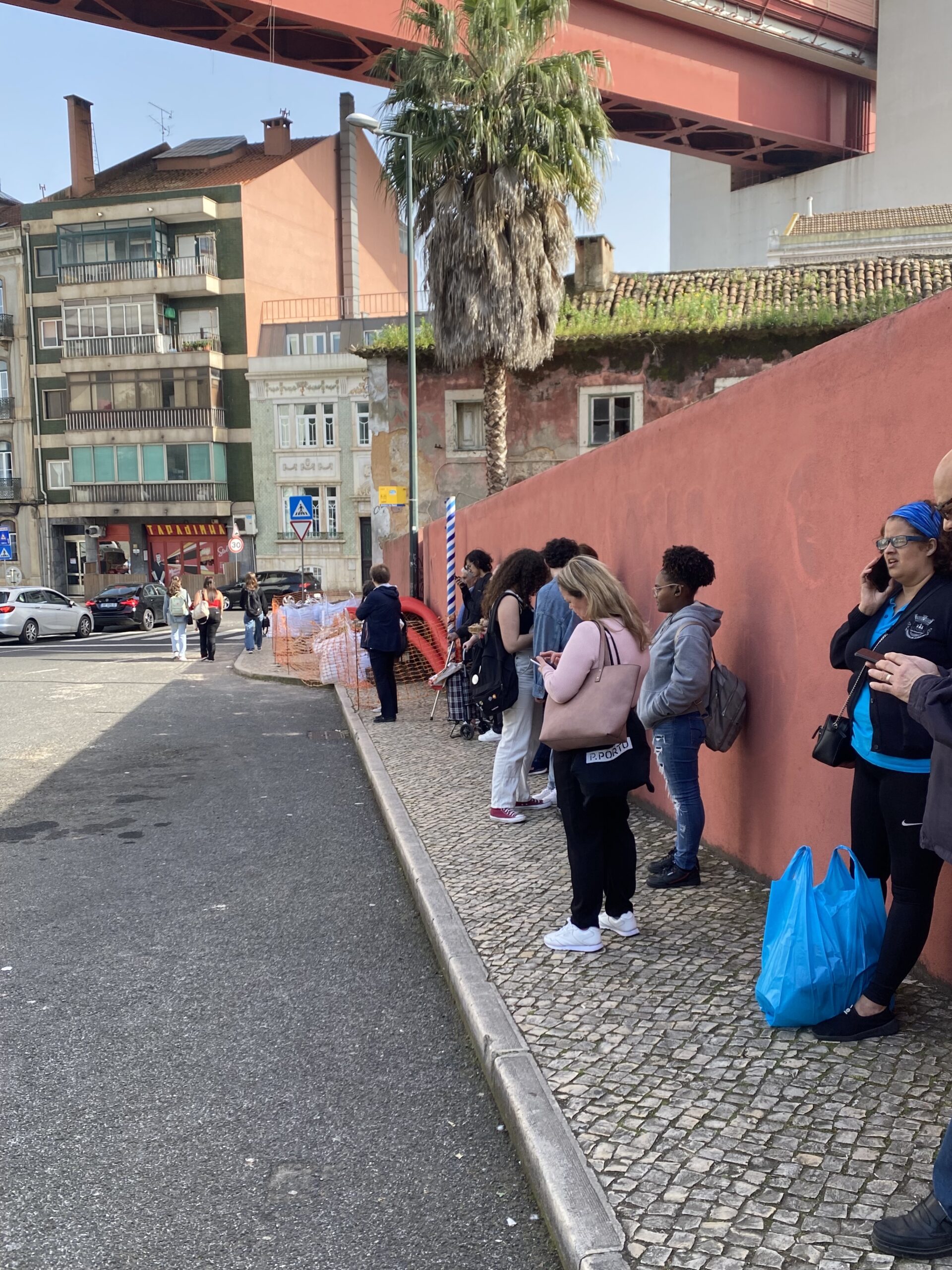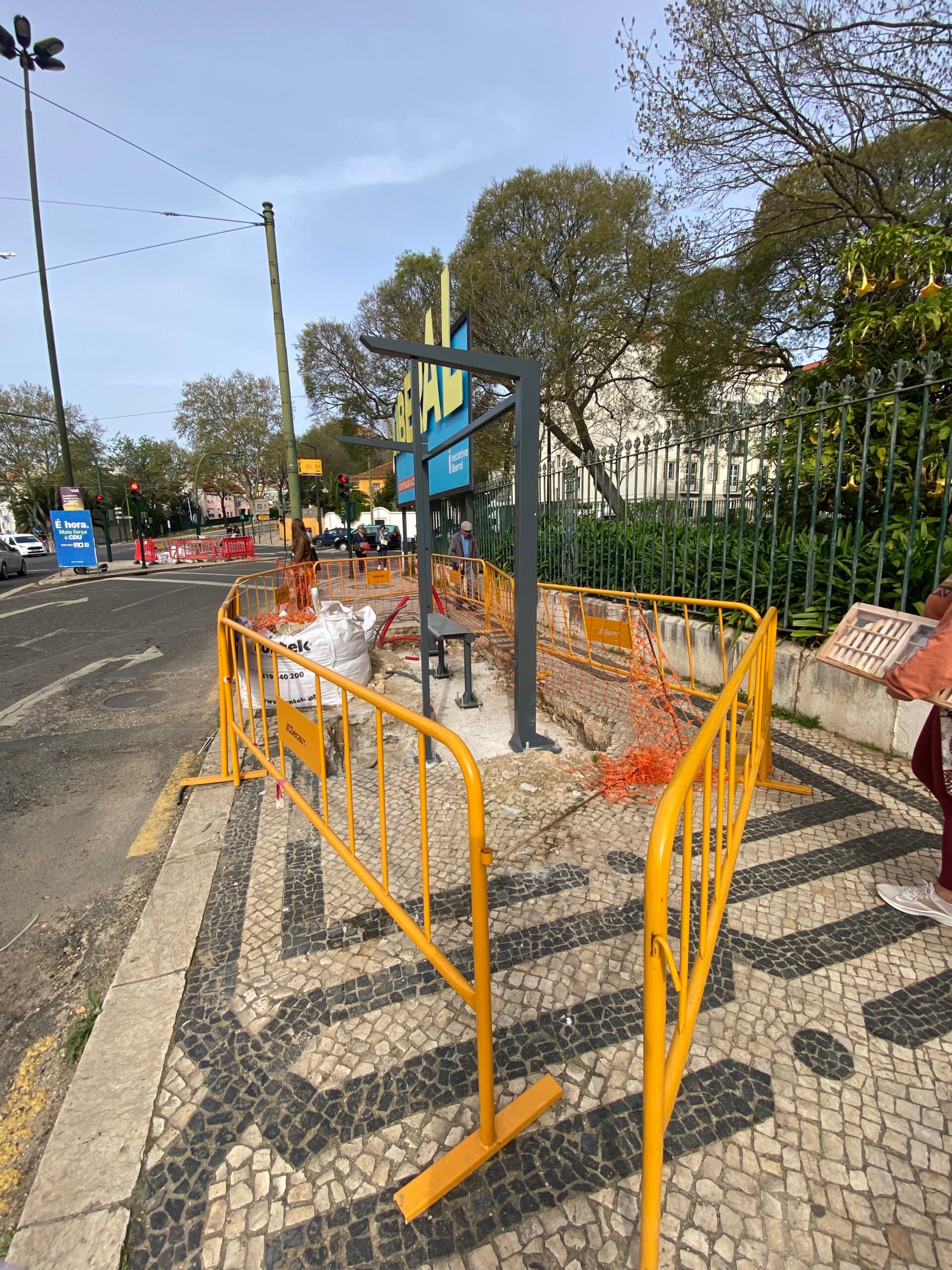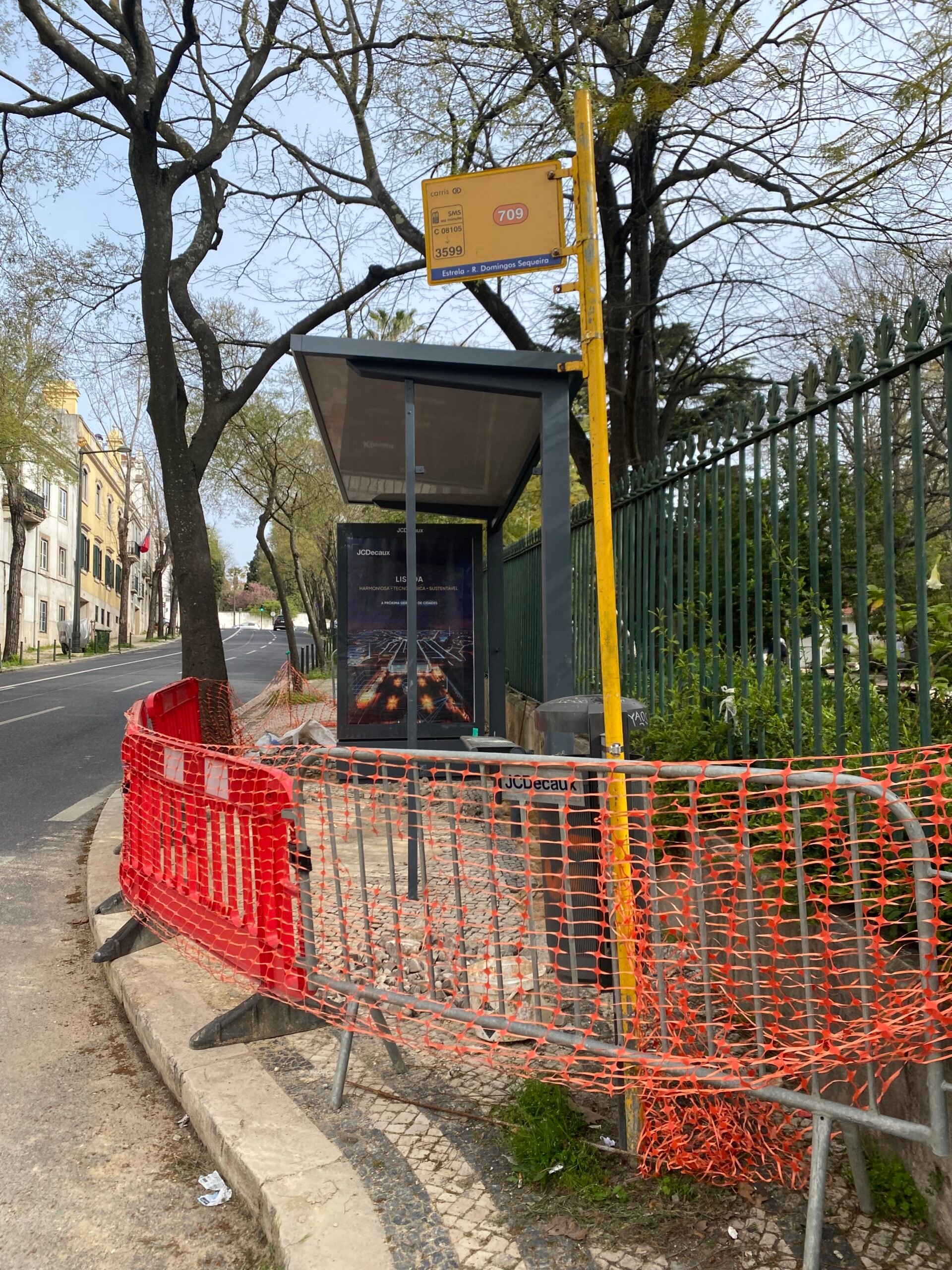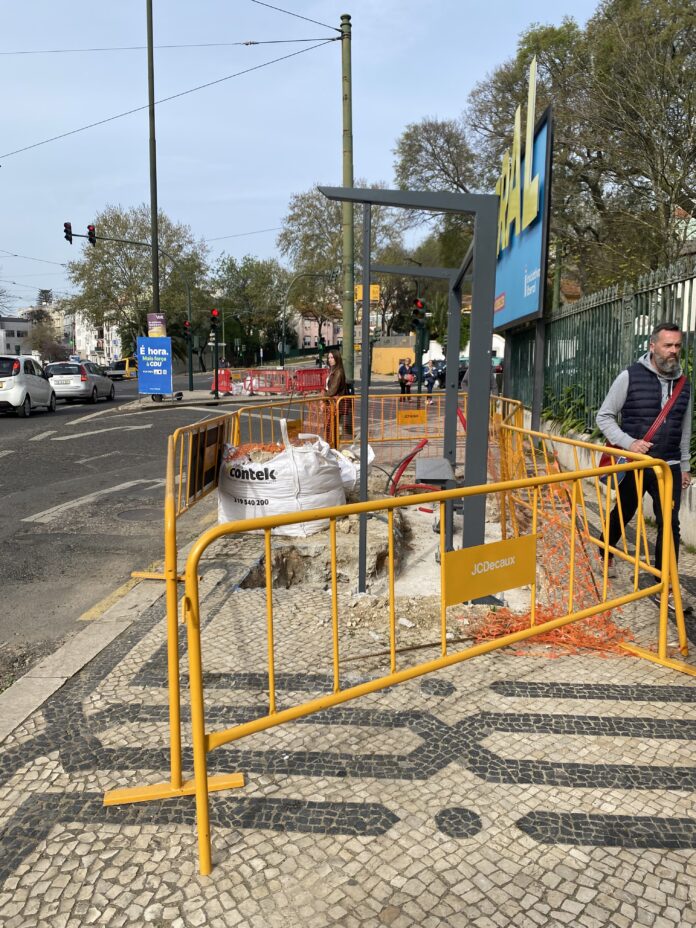Have you noticed something different about Lisbon’s streets lately? If you’ve found yourself wondering, “Where have all the bus shelters gone?” you’re not alone. Many visitors to the city have been left puzzled as they join crowds waiting in the sun for buses around roped-off holes in the ground or standing in the shadows far from the formerly shaded bus stops. Of course, the obvious answer is that the bus shelters are getting replaced as part of a larger plan to modernize the city’s public transport facilities. Let’s explore the reasons behind the removal of these shelters and what the future holds for commuters in Lisbon.

In September 2022, a new strategic partnership between Lisbon’s City Council and JCDecaux was finalized, with the agreement to subcontract the company MOP (Multimédia Outdoors Portugal) to supply a portion of the new bus shelter equipment. According to the new contract, 1,760 bus shelters will be replaced and 240 new bus shelters will be erected.
The city of Lisbon does not directly invest in building bus shelters itself, but instead concessions out the service to private companies. The expiration of previous contracts in 2015 prompted an extensive search for a fresh face in outdoor advertising. JCDecaux’s selection in 2018, after overcoming legal hurdles, set the stage for this urban renewal.
Their plan not only includes the aforementioned shelter upgrades but will also see the renovation and a doubling of the number of automatic public toilets in addition to a 50% reduction in the number of billboards.
These new shelters promise to enhance the commuter experience with modern amenities like USB charging ports, Wi-Fi networks, and real-time information panels, among others. This move towards a more connected and convenient public transport system is also reflected in the improvement of public toilets. The upgrade from 39 to 75 toilets, with at least 10% accommodating individuals with disabilities, demonstrates a commitment to accessibility and public service.
Moreover, the contract stipulates a significant aesthetic overhaul, which will also reduce the number of different bus shelter designs from around 30 to just five. This streamlining effort aims to make Lisbon more visually appealing. The current mishmash of designs, some over 25 years old, will be replaced by modern, technologically-equipped bus shelters that better serve the city’s needs and environmental goals.
JCDecaux’s approach aims to not only replace current bus shelters but also take a sustainable approach through the use of LED lighting, material recovery processes, and solar power. The company’s global pledge to reduce carbon emissions aligns with Lisbon’s greener, cleaner vision for its public spaces.

Financially, the city stands to gain significantly from this new contract, with annual revenues expected to jump from just over €2 million to €8.3 million. Lisbon will also gain a suite of digital advertising tools for institutional communication, including removable and digital advertising posters, and large-format digital panels. This will enable real-time dissemination of information on news, events, or emergencies, further embedding technology into the fabric of city life.
The sweeping changes to Lisbon’s public transport shelters, while largely positive, come with their own set of challenges for the city’s residents. The removal of existing shelters in preparation for the new installations has temporarily left many waiting areas without any protection from the elements. This situation poses a significant inconvenience as Lisbon moves into spring, making the wait for buses an uncomfortable, even potentially hazardous, experience for passengers.
The absence of shelters means direct exposure to the sun, which can lead to heat-related illnesses among vulnerable populations such as the elderly, children, and those with pre-existing health conditions.
Moreover, the construction and installation process for the new shelters can lead to disruptions in the usual flow of pedestrian traffic. Sidewalk closures or diversions, which are necessary for the safe installation of new shelters, may force pedestrians to take longer routes or navigate through less familiar areas. This will add to the daily commute time and potentially lead to confusion.

Additionally, the construction work may temporarily reduce the accessibility of certain bus shelters, which can complicate travel plans and cause frustration among regular users of public transport. These inconveniences underscore the importance of strategic planning and communication from the city council and JCDecaux to minimize the impact on Lisbon’s residents. It remains to be seen how smooth the transition to newer, more modern public transport amenities will actually be. Hopefully, before the beginning of the summer, Lisbon will be able to enjoy its bus shelters once again.



i regret that with digitalization and modernization of bus shelter the authorities did not required sufficient sitting place. we used to have two benches that could accomodate 6-8 people and now it is hardly for 3. not only design is important but also practicality which in this case is missing.
Hi Grzegorz, Thanks for your comment. We agree that practicality is often missing in updates or not taken into account until much later.